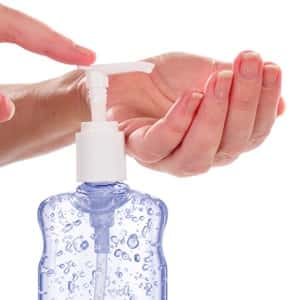
When infections like colds or influenza are spreading rapidly, people may rely on hand sanitizers to try to stay healthy. Public health experts acknowledge that hand hygiene is crucial for disease prevention (Current Opinion in Infectious Diseases, Aug. 2014). When investigators compared sanitizers to normal hand washing, they found that alcohol-based hand rubs inactivate bacteria. However, such products appear less effective against viruses (Journal of Food Protection, June 2016).
Do Hand Sanitizers Protect Against Viral Infections?
The FDA has just issued a warning to the maker of Purell alcohol-based sanitizer for unproven claims. According to the agency, the company stated that people using its OTC hand sanitizers are protected from flu, norovirus, Ebola, MRSA, VRE and the infectious fungus Candida auris. Apparently, the company made these claims on social media and on the company’s web pages.
The FDA objected that it had seen no evidence from properly controlled clinical trials to support such claims. In response, the company has agreed to revise its online messaging.
Staying away from sick people as much as possible and cleaning the hands frequently, whether with soap and water or with hand sanitizers, are still sensible approaches to avoiding colds and flu.
Citations
- Huang GK et al, "Back to basics: Hand hygiene and isolation." Current Opinion in Infectious Diseases, Aug. 2014. DOI: 10.1097/QCO.0000000000000080
- Foddai AC et al, "Efficacy of instant hand sanitizers against foodborne pathogens compared with hand washing with soap and water in food preparation settings: A systematic review." Journal of Food Protection, June 2016. DOI: 10.4315/0362-028X.JFP-15-492

